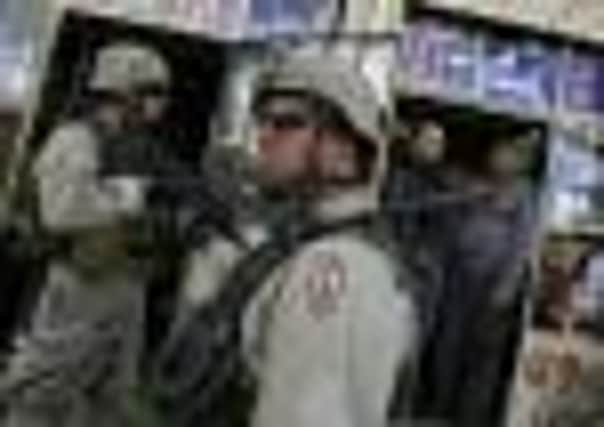Book review: The Yellow Birds by Kevin Powers


The Yellow Birds
by Kevin Powers
Sceptre, 183pp, £14.99
There is the war literature – the novels and poems, meditations on wars now historic, but made palpable and real as their subjects fight and fall, the narrator often being the one who survived to tell the foggy, absurd, horrific and heroic tale.
Reportage comes first, then the books and films, which shape our understanding so we can grasp what it is like to go over the top of some muddy trench, or about how some might have felt about the smell of napalm in the morning.
Advertisement
Hide AdAdvertisement
Hide AdThe further away the world wars and Vietnam are, the more closely we come to understand them through interpretation. For close to 25 years the UK and the US have waged an on-again-off-again war in Kuwait and Iraq, so long that, except for the families of service men and women, we are largely inured to scenes of soldiers on our televisions. Now one of the first novels about the most recent conflict attempts to jolt us, to take us into the heat of the desert with stories of three men in combat.
There has been much excitement about Kevin Powers’s The Yellow Birds. Pre-publication readers lined up to praise it as the “All is Quiet on the Western Front of the Arab wars” (Tom Wolfe). At the Edinburgh Book Festival, John Burnside was full of praise for the novel, a debut for Powers, an ex-soldier who wrote the book during a post-discharge stint at the prestigious University of Texas at Austin’s Michener Centre for Writers.
It is a novel about the horrors of war made beautiful by the author’s poetic language which is like handsome ironmongery, delicately strong but not overwrought. In it we meet our hero, Private Bartle, who is piecing together the episodes which led him to enlist, the strange desensitisation caused by the theatre of battle, the post-traumatic weirdness of coming back home, and the events which bring him to make a desperate decision at the crux of the novel.
With him are two others; one is the younger Murph, to whose mother Bartle makes a rash promise to return home safely.
They start their war convincing themselves that the dead are a numbers game one they can beat.
“We thought that if we remained ordinary we would not die. We confused correlation for cause and saw special significance in the portraits of the dead, arranged neatly next to the number corresponding to their place on the growing list of casualties we read in the newspapers, as indications of an ordered war. We had a sense, something we only felt in the brief flash of synapse to synapse, that these names had been on the list long before the dead had come to Iraq. That the names were there as soon as those portraits had been taken, a number given, a place assigned. And that they had been dead from that moment forward.”
The other is his sergeant, Sterling, a brutal dog of war who is only 24 – just three years older than Bartle – yet infinitely weary and distinctly unhinged. It is Sterling that gets the best lines, the salty language of battle and desperate us-against-them rhetoric.
Advertisement
Hide AdAdvertisement
Hide Ad“I hated the way he excelled in death and brutality and domination. But more than that, I hated the way he was necessary, how I needed him to jar me into action even when they were trying to kill me, how I felt like a coward until he screamed into my ear ‘Shoot these hajji f****s!’.”
In The Yellow Birds, there is not so much of the set piece battles of film and TV. Instead the author portrays the mind-numbing tedium, underlined by constant fear and watchfulness. When battle occurs it is surprising, a sudden shot which fells the man next to you. “We did not take more than a few steps before we heard the whine of incoming mortars. A bright sound like the sky had become a boiling kettle. We looked at each other, Murph and I, dumbly staring into our own infinity made up of fraction upon fractions of seconds. For one brief incalculable moment we were not brave or afraid. Neither spoke nor moved. Welled eye abuts welled eye, a look between gun-broke horses. I couldn’t tell where the first one hit, but it sounded close. It enveloped me, a small metal fist to the chest of the earth.”
The battles are set in Iraq’s biblical Nineveh province, in a former town called Al Tafar. Powers fought as a machine gunner in Mosul and Tal Afar during 2004 and 2005.
If The Yellow Birds was nothing more than fictionalised memoir, it would not be any less important. But it is not. It could be that Powers is being cheered on for not having fallen, either on the battlefield or on his return into a shell-shocked facsimile of normal life. But he is also being feted for how he’s managed to transformed his experience into art.
At one stage in the book, there’s a bravura passage of stream of consciousness that may well be among the most effective lines ever written about a soldier trying to come to terms with what he has seen and done. For that alone Powers deserves a medal.